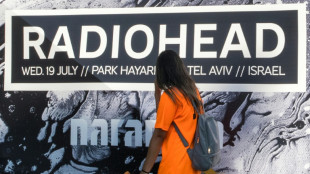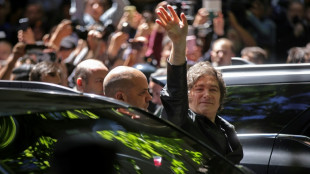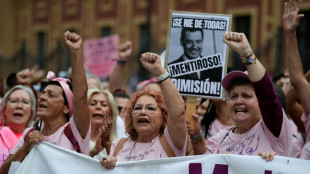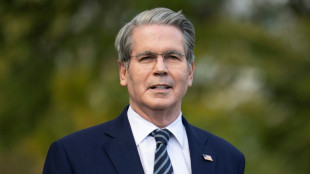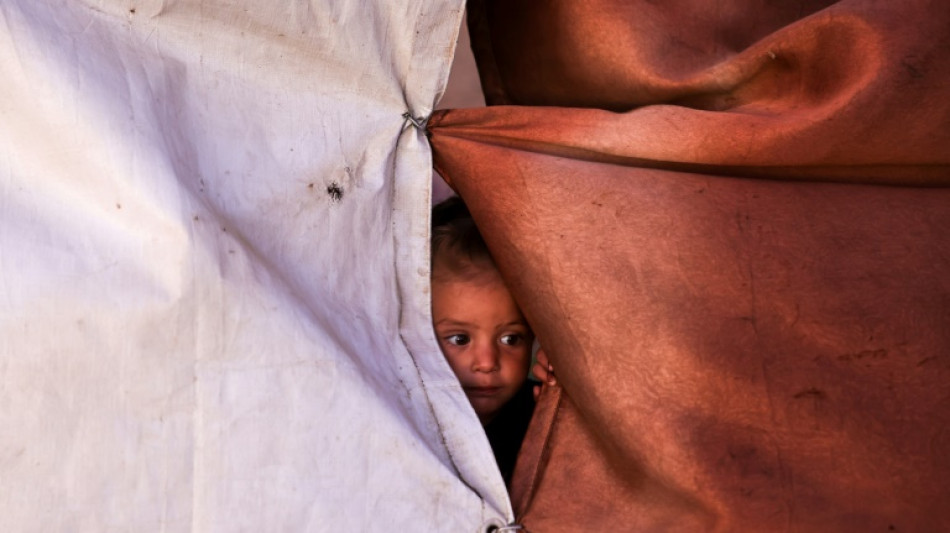

Israel insists it calls shots in Gaza despite truce
Prime Minister Benjamin Netanyahu insisted on Sunday that Israel would decide for itself when to strike its foes and which countries could join an international security force in Gaza, as Egyptian recovery crews arrived.
The Egyptian convoy, captured on camera by AFP reporters in Khan Yunis in the south of the Gaza Strip, included heavy machinery to help speed the search for the remains of deceased Israeli hostages lost in the rubble of the devastated Palestinian territory.
Low-loader lorries flying the Egyptian flag transported bulldozers and mechanical diggers into Gaza, accompanied by tipper trucks sounding their horns and flashing their lights, en route to an Egyptian aid committee based in Al Zawayda.
Under the terms of a US-brokered ceasefire, as Israeli forces withdraw after two years of brutal fighting against Hamas, an international force, expected to be drawn from mainly Arab or Muslim countries, is supposed to secure Gaza.
But Israel opposes any role for its regional rival Turkey and Netanyahu, under fire from hardliners in his own coalition even for agreeing the ceasefire, took a stern line on Sunday as government ministers met in Jerusalem.
"We made clear with respect to international forces that Israel will determine which forces are unacceptable to us," he said, a day after US Secretary of State Marco Rubio wound up the latest in a parade of high-level visits by Washington officials.
- 'We do not seek approval' -
Aid agencies have complained that humanitarian convoys still do not have enough access to Gaza to alleviate the famine conditions in parts of the territory, and families there are still going hungry.
AFP journalists followed the family of 62-year-old grandmother Hiam Muqdad for a day in their Gaza City neighbourhood, where they live in a tent next to their ruined home and her barefoot grandchildren gather domestic waste and twigs to heat water.
"When they said there was a truce, oh my God, a tear of joy and a tear of sadness fell from my eye," Muqdad told AFP. "The child's dream is gone. In the past they used to go to the park but today children play on the rubble."
Israel has withdrawn its forces within Gaza to the so-called "Yellow Line", but remains in control of more than half the territory, approves every UN aid convoy going through its borders and has carried out at least two strikes since the ceasefire.
"Israel is an independent state. We will defend ourselves by our own means and we will continue to determine our fate," Netanyahu told the ministers. "We do not seek anyone's approval for this. We control our security."
To underline this, Netanyahu pointed out that Israel had pummelled Gaza with 150 tonnes of bombs and missiles on October 19 after two of its soldiers were killed, and had conducted a strike on Saturday targeting an Islamic Jihad militant.
The United States and allies have set up a truce monitoring centre in southern Israel -- the Civil-Military Coordination Centre (CMCC) -- and dispatched a string of top officials from President Donald Trump's administration to promote the ceasefire.
The latest Israeli strike came just as Rubio was leaving Jerusalem, but Washington's top diplomat said he remained optimistic the ceasefire would broadly hold if Hamas agrees to disarm and hand over the rule of Gaza.
Rubio told reporters that Washington did not expect the Yellow Line to become Gaza's new border and that Israel would eventually pull back.
"I think, ultimately, the point of the stabilisation force is to move that line until it covers hopefully all of Gaza, meaning all of Gaza will be demilitarised," Rubio told reporters on his plane as he flew on to Qatar.
The main Palestinian factions, including Hamas, have agreed to form a committee of technocrats to administer Gaza alongside the ceasefire and reconstruction effort.
But Hamas has resisted calls for its immediate disarmament and has launched a crackdown on rival Palestinian gangs and armed groups in Gaza.
- Hostage recovery -
On Saturday, Mousa Abu Marzouk, Hamas's head of international relations and legal affairs, warned: "Excluding Hamas from maintaining stability in the Gaza Strip could lead to chaos and a security vacuum."
Hamas insists it is serious about returning the remaining 13 hostage bodies.
They include 10 Israelis kidnapped during the group's attack on October 7, 2023 that triggered the conflict, one Israeli missing since 2014, and a Thai and a Tanzanian worker.
Hamas has already returned the remaining 20 living hostages and
But the group has warned that it will struggle to find the remains of the others in the ruins of Gaza, where more than 68,500 Palestinians have been killed by Israeli fire, according to the health ministry of the Hamas-run territory.
The UN deems the figures reliable.
The Egyptian crews and equipment that arrived on Sunday may be able to help in the recovery mission, but an 81-strong group of Turkish rescue and recovery experts has yet to be given permission by Israel to enter Gaza.
burs-dc/jd/dcp
H.Erikson--MP

